New adverts on the London Underground fuelled a Twitter storm about akathisia and related psych drug harms. The campaign is sponsored by MISSD, a non-profit that raises awareness of akathisia. MISSD was founded in 2011 by Wendy Dolin after the tragic death of her husband, Stewart, who died six days after taking Seroxat (called Paxil in the US). Akathisia isn't a garden variety "side effect." Akathisia can precipitate your death.
The current campaign consists of more than 1,000 train posters informing passengers that antidepressants and antipsychotics can cause akathisia which can cause self-harm, violence, and suicide. It's fitting that these adverts are on the Tube, given that both akathisia and the London Underground System have been around for more than 100 years. Tube trains rolled out in 1863, and akathisia was first identified in 1902. Yet, judging by recent tweets, it seems that several psychiatrists have been asleep longer than Rip Van Winkle when it comes to akathisia awareness. (More on this below.)
More importantly, the Tube is an appropriate place for these posters because Tube stations close to psychiatric hospitals tend to have a higher incidence of suicide (Farmer et al., 1991; O'Donnell and Farmer, 1994). Suicide prevention charities, like the Samaritans, are probably aware of this since they also run Tube adverts. It's quite poignant then that these adverts, rigorously scrutinized by the advertising company's review team that works closely with Committees of Advertising Practice (CAP), are running on the Tube.
Spot the Difference
The original Tube advert MISSD submitted to the advertising review team/CAP is not the same as today's advert. You can spot the differences below.
MISSD has run mass transit adverts in the US without ever needing to change the copy for approval. But the UK's rules and regulators are different from those in the US. If MISSD didn't make the changes, these akathisia awareness posters would never run on the Tube. The changes include:
1. Target antidepressants and antipsychotics by explicitly naming them;
2. Add the word "rare," and;
3. Remove the phrase "Nobody is immune to akathisia."
The specific mention of antidepressants doesn't bother me. SSRIs harm thousands of people, and SSRIs often induce akathisia. Withdrawal akathisia is also one of many components people can experience when suffering from Protracted Withdrawal Syndrome.
But what does trouble me is baseless censorship by the powers that be. We'll never know who comprises the advertising review team/CAP. Are medical professionals reviewing the adverts? If so, what institutions are they from, and do they have financial or ethical conflicts of interest with the pharmaceutical industry?
Many different drugs do cause akathisia. Psych drugs aren't the only culprits. Could the advertising review team/CAP explain to these moms why the akathisia risks posed by Roaccutane are less worthy of publicizing?
While they're at it, maybe the advertising reviewers can also explain what research they used to insist on the word, rare. Most logical people would not state that 50% and 80% are rare occurrences.
While MISSD prefers their standard advert that runs in the US, the non-profit decided it was better to run the current London campaign, which directs viewers to MISSD.co for more info, than no England awareness campaign. I agree. Medical organizations, suicide prevention charities, and many doctors have worked to keep akathisia risks in the dark. (Kind of like the recent sodium valproate story, a controversy that broke a few days ago yet has been known by British drug regulators for many years.)
Twitter Storm and Feigned Concern
The majority of tweets sparked by the MISSD advert supported the awareness campaign. One advocate on Twitter who supports MISSD's mission did share her discomfort regarding the word "violence." But honest discussions about iatrogenic harms should include violence when it is a drug-induced effect. The parents of these 22 children who died in a school bus crash in Switzerland could share their thoughts on SSRI-induced violence. So, too, could the surviving relatives of these ten families.
I suspect pharma has settled SSRI homicide cases out of court, but we'll never hear about those. However, one case that was made public was against GSK (then SmithKline Beecham). Donald Schell, 60, took two Paxil tablets before shooting his wife, their daughter, his granddaughter and himself to death on Feb. 13, 1998. A jury returned the following verdict:
Speaking of pharma brings me to this photo taken by Professor Anthony David, who saw MISSD's poster when he was riding on the Victoria line. David tweeted the adverts are "not helpful and should be removed."
Um, FYI: Awareness-raising means making people conscious of a problem or issue. This fact, however, seems lost on Burn.
UPDATE: Prof Rob Howard decided to remove the defamatory post and has now issued a fauxpology on Twitter.
Bob Fiddaman




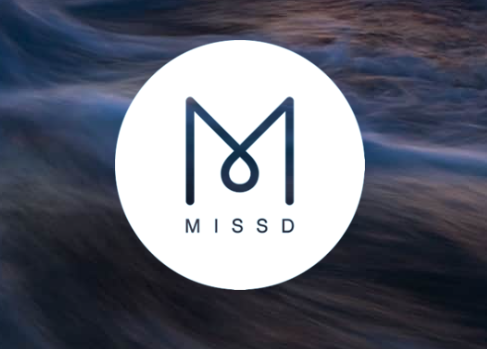
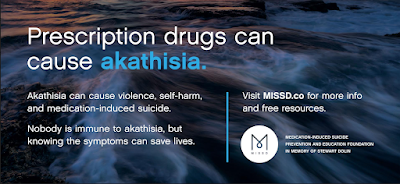



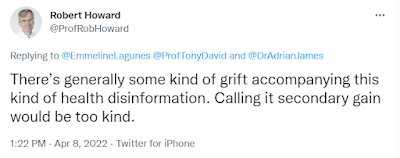
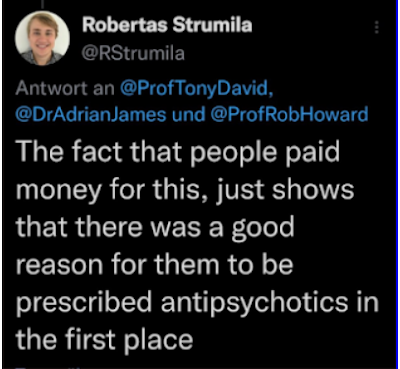

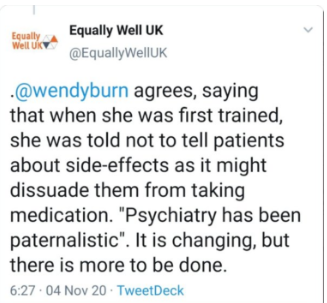

No comments: